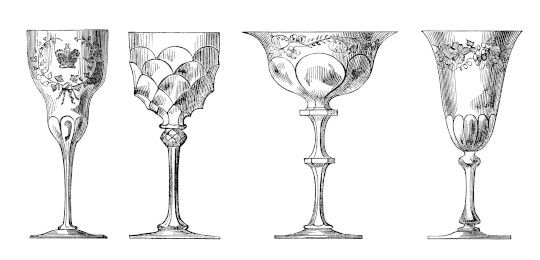John Bent? Navy Sailor? Drunken Fellow? Winston Churchill? Anonymous?

Question for Quote Investigator: The state of inebriation is temporary, but the state of stupidity is durable. A clever dialog hinges on this fundamental difference:
“You are drunk.”
“Yes, and you are a fool. But I will be sober in the morning, and you will remain a fool.”
Would you please explore the provenance of this thrust and parry?
Reply from Quote Investigator: This comical interaction is a member of a family of anecdotes which famously includes a story about Winston Churchill’s jousting with an antagonist. A separate QI article centered on the Churchill anecdote and tales from the U.K Parliament can be read by following this link.
This article will center on the earliest matches located by QI. In 1863 the “Urbana Union” newspaper of Urbana, Ohio published the following short item. Boldface added to excerpts by QI:1
The drunken fellow’s reply to the reprimand of a temperance lecture, delivered in some of the stupid forms of that order of men is worth remembering. “I’m drunk-but-I’ll get over that pretty soon; but you’re a fool-and you’ll never get over that.”
Below are additional selected citations in chronological order.
In 1878 a book of “Reminiscences of the Bench and Bar of Missouri” included a chapter about John Bent who had been a representative in the Missouri State Legislature. The chapter included a version of the anecdote:2
When called upon to testify, he felt very drowsy, and a young attorney who undertook the cross-examination, without knowing Mr. Bent, interrogated him as follows:
“What is your name, witness?”
“My name is Bent.”
“Your first name, if you please?”
“John Bent.”
“You are drunk, are you not?”
“A little under the influence of wine. I will soon get over it, however; but you will never get over being a d—d fool.”The judge fined Mr. Bent $5 for using profane language in court; but the young attorney paid more dearly for his impertinence, for he never got over the name of “Bent’s d—d fool.” It stuck to him through life.
Also, in 1878 the “Hampshire Telegraph” of Portsmouth, England printed a version of the joke featuring a sailor:3
A story is being told of a certain naval officer, not remarkable for his abundance of brains, which, if true; does not speak highly for the discipline onboard that particular ship. “You’re drunk, Sir!” he is reported to have said to an intoxicated blue jacket fresh from unlimited absence without leave. “I know I’m drunk,” returned the tar; “but I shall get over that. As for you,” he sent on, looking at his commanding officer’s cranium pityingly, “you’re a d—d fool; and you’ll never get over that!”
In 1880 “The Times” of Philadelphia, Pennsylvania printed a version of the tale about an encounter with a sleeping drunk person:4
They stopped and looked and commented upon his being drunk or asleep. Finally one said: “O come along, can’t you see the fellow’s drunk?” Up came the head of the drowsy individual, and his eyes half unclosed, leered at the man who had just spoken as he answered with a big oath: “Yes, I’m-er-drunk, bat I can-er-get over that. You’re a d—d (hic) fool, and you’ll never (hic) get over that.”
In 1882 a newspaper Milwaukee, Wisconsin published an instance of the tale in which the barb was aimed at a member of the U.K. Parliament:5
A Conservative member of the House of Commons, who talks much on foreign affairs, but not wisely, was passing last week through palace yard, when a man ran against him. “Do you know, sir, who I am?” said the member, “I am Mr. —–, M.P.” “What?” irreverently answered the man, “are you Mr. —–, the greatest fool in the House of Commons?” “You are drunk,” exclaimed the M.P. “Even if I am,” replied the man, “I have the advantage over you – I shall be sober to-morrow, whereas you will remain the fool you are to-day.”
In conclusion, this joke template has been applied to several different stock characters and individuals over the years. The two participants in first instance located by QI were both anonymous. QI believes many of the anecdotes are fictional.
Image Notes: Public domain illustrations of four wine goblets.
Acknowledgement: Many thanks to top quotation and slang researcher Jonathon Green who tweeted a valuable 1880 citation for this joke. This caused QI to revive a branch of research that began when QI examined the Churchill anecdote several years ago. Thus, QI formulated this current question and published this exploration. Thanks also to Ben Zimmer for a helpful notification.
Update History: On March 27, 2025 the format of the bibliographical notes was updated.
- 1863 July 1, Urbana Union, (Filler item), Quote Page 4, Column 1, Urbana, Ohio. (Newspapers_com) ↩︎
- 1878, Reminiscences of the Bench and Bar of Missouri by W. V. N. Bay (William Van Ness Bay, Late Judge of the Supreme Court of Missouri), Chapter: John Bent, Start Page 248, Quote Page 249, F. H. Thomas and Company, St. Louis, Missouri. (Google Books Full View) link ↩︎
- 1878 June 22, Hampshire Telegraph & Sussex Chronicle, Service Gossip, Quote Page 3, Column 5, Portsmouth, England. (Newspapers_com) ↩︎
- 1880 September 8, The Times, Pleasant Paragraphs, Quote Page 3, Column 1, Philadelphia, Pennsylvania. (Newspapers_com) ↩︎
- 1882 August 05, The Daily Republican-Sentinel, His Advantage, Page 5, Column 2, Milwaukee, Wisconsin. (19th Century U.S. Newspapers Gale) ↩︎